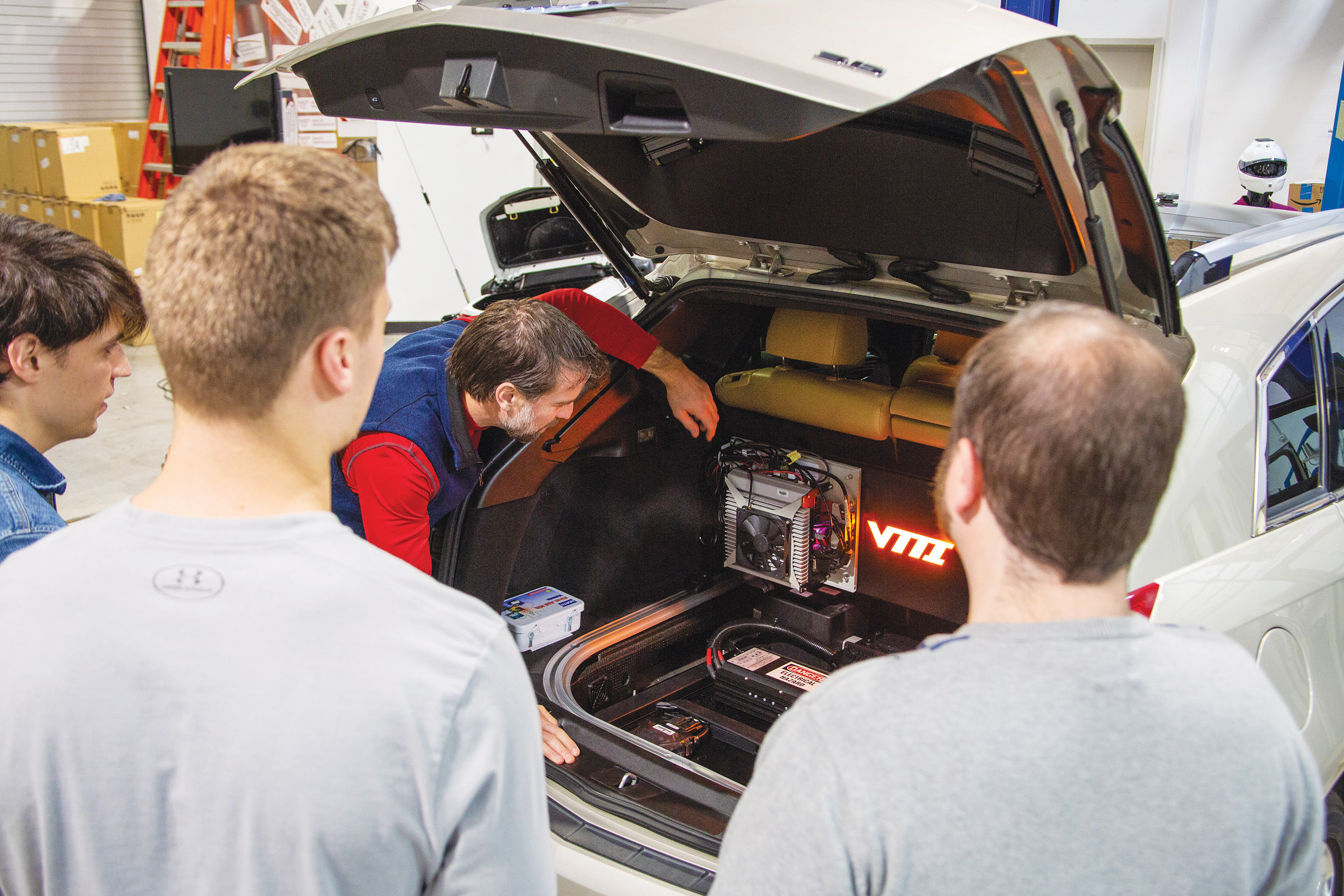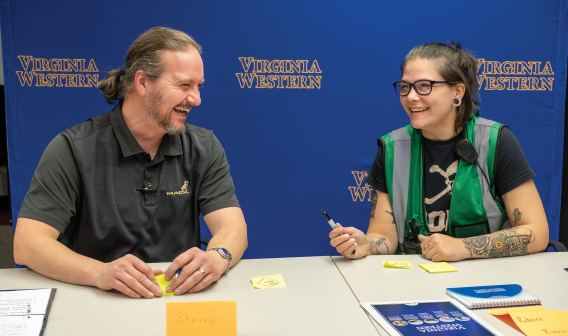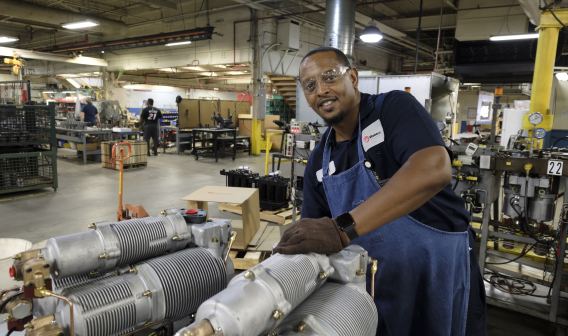Pioneering Research and Partnership at Scale
The Virginia Tech Transportation Institute’s (VTTI) labs allow students to tackle much more than just class assignments. The space is also used for projects that help transportation industry members and government agencies advance vehicle design, safety, and other research efforts.
Established in 1988, VTTI has grown from 15 to approximately 300 employees. Today, it’s the second largest university-level transportation institute in the United States, with research ranging from pavement surface cleaning techniques to various aspects of vehicle electronic systems safety in partnership with government agencies and automotive industry giants like the General Motors Company (GM).
GM has developed and tested numerous features at VTTI over the course of a relationship of more than 20 years, ranging from driver convenience features to advanced driver assistance systems and automated driving systems. For example, a series of studies evaluating rearview cameras illustrated, early on, the benefits of a safety feature that is now required on all new vehicles sold in the United States. Other major research areas include projects focused on teen drivers and vulnerable road users.
“VTTI has touched nearly every advanced safety feature on our vehicles over the years,” said Jeff Schultz, an engineering group manager in GM’s Global Safety Technology and Strategy organization. “It’s been a great, valuable collaboration.”
More recently, GM’s Super Cruise feature, a hands-free driver assistance technology that keeps the vehicle operating at a driver-selected speed and following gap and centered in a lane, was researched and tested at VTTI.
Systems are frequently tested at the Virginia Smart Roads test facility, a controlled-access area in Montgomery County, managed by VTTI in cooperation with the Virginia Department of Transportation as part of Virginia Connected Corridors. In addition to Virginia Smart Roads, VTTI’s facilities include the Northern Virginia Connected Vehicle Test Bed — which includes sections of Interstates 66 and 495 and U.S. Routes 29 and 50 — and the VIRginia International Raceway in Halifax County.
VTTI conducts applied research, directly supporting the research and development phase of advanced prototype systems, and measuring performance benefits while providing answers to critical research questions for industry and government partners. These partnerships benefit companies through VTTI’s cutting-edge research, VTTI through greater exposure in the auto industry, and the student researchers who gain valuable experience.
For about five years, VTTI has offered the InternHUB program, a project-based, interdisciplinary learning effort to accelerate students’ practical skills development by helping them obtain internships with high-tech employers in the transportation industry. The institute recruits industry members like Continental AG, who pay an annual fee that funds development of a lab environment for the associated project, including the necessary equipment.
Students are generally recommended by faculty or selected by an organization that has reviewed their résumés and credentials. Teams of interns report to the company and are paired with a Virginia Tech faculty member, who advises them and helps keep the project on track.
“We know the model can work well and that companies want to get a better look at the students before they make hiring decisions,” said Michael Mollenhauer, VTTI’s division director of technology implementation. “They also want the students to get a look at them, because they don’t want to hire students and have them turn around and leave in a month or two because they’re not happy with what they ended up doing.
“Getting to know each other is really important. To have the ability to work in your own backyard and see the results of that is a very meaningful part of the process.”





